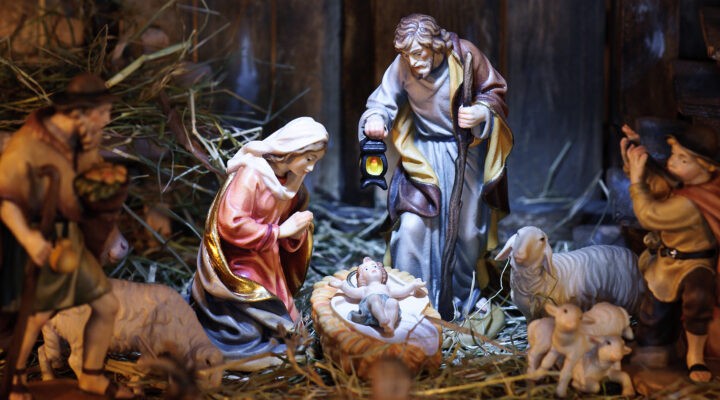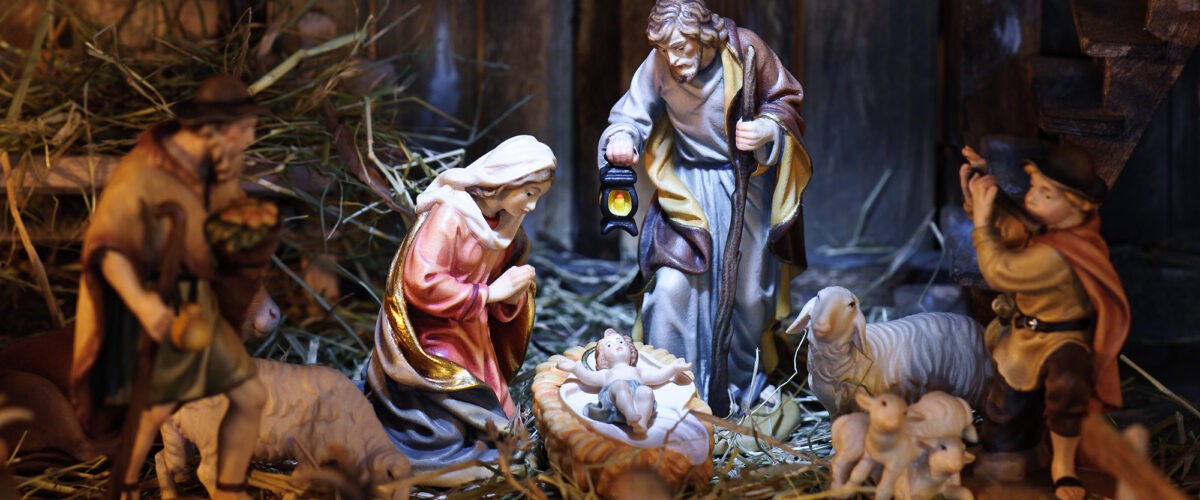As we kneel at the manger to worship the infant who would be Savior of the world, let’s turn our minds to the God Jesus called Abba, the One whom theologian John Cobb called “Jesus’ Abba.” Abba was the Aramaic name Jesus used for his God. There are nine prayers of Jesus in the Gospels and in all but one of them he addressed God as Abba. (The other was his anguished prayer from the Cross: “My God, my God, why hast thou forsaken me?”)

Stephen Shoemaker
The name Abba was the Hebrew child’s first word for God, like our “daddy” or “poppa.” For Jesus, the name Abba expressed his experience as the Beloved of God ; it spoke to his relationship to God as one of intimacy, trust and ultimate loyalty.
But what, asks Cobb in his book Jesus’ Abba, was the nature and character of Jesus’ Abba? His answer is that Jesus’ God was not the “Almighty” God of our religious traditions, the omnipotent king, controller of the universe; nor is this God the Greek philosophers’ God, the “unmoved mover,” unmovable and unmoved by what happens on earth.
The Abba of Jesus is the God of all love working at every moment for our good and for the good of the world. As Paul expressed his faith: “We know that in everything God works for good with those who love him, who are called according to his purpose.” That Revised Standard Version translation corrects the sense of the King James Version’s, “And we know that everything works together for good.” We know that this is not manifestly true.
The Abba of Jesus through love relinquishes control. Not everything that happens is the will of God. To use theologian Frank Tupper’s challenging and important phrase, “God always does the best that God can do.”
“The Abba of Jesus can only do what only love can do, not coerce us or control history, but work with us for our good and the good of the world.”
The Abba of Jesus can only do what only love can do, not coerce us or control history, but work with us for our good and the good of the world. Jesus said in Matthew’ Gospel: “It is not the will of my Abba in heaven that one of these little ones should perish.” But they do, every day by the thousands of thousands. The infant Jesus was rescued from Herod’s murderous sword, but what about the other innocent children around Bethlehem slaughtered by Herod’s troops that terrible day? Tupper says the rescue of the child Jesus while the others died causes us to wrestle with what he called the “scandalous providence” of God’s world where some are saved and others not. It is only by love that God draws us toward the world God wants.
The birth of Abba’s Jesus was the birth of one as vulnerable to the dangers of life as every child. Without Mary’s courage and the astonishing faith of Joseph who sheltered both Mary and the child in her womb, he might not have made it to this world. The baby escaped Herod’s sword, but 30 years later he was executed on a Roman cross. God was doing the best that God could do.
Here is the call of Jesus’ Abba at the nativity of our Lord: to work with our Abba for the protection and well-being of every child — the hungry child in West Virginia, the child at night on an urban street with her homeless mother, the young one already addicted, the gay young person considering suicide, the brown immigrant child at our borders. And what about those yet to be born, our children’s children and theirs? Can we expand our moral vision to consider them as we care for God’s earth in peril? At the birth of Abba’s Child, consider the children.
And our own children, too, to cherish our children as we teach them that they too are God’s beloved and tell them that this Abba is loving and delighting in them as in the one born the night we call holy.
Stephen Shoemaker serves as pastor of Grace Baptist Church in Statesville, N.C. He served previously as pastor of Myers Park Baptist in Charlotte, N.C.; Broadway Baptist in Fort Worth, Texas, and Crescent Hill Baptist in Louisville, Ky.


